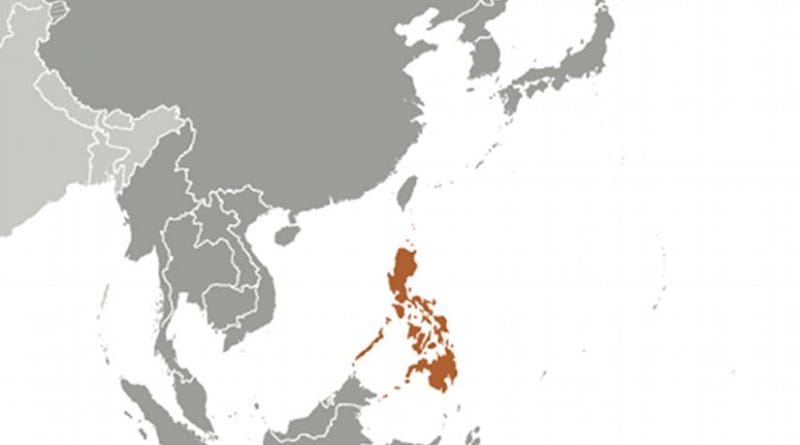Unfinished Business: Islamist Terrorism Threat In “Post-Peace” Mindanao – Analysis
By RSIS
The neutralisation of a Malaysian bomb plotter linked to the Jemaah Islamiyah in Davao underscores the latent threat posed by Islamist extremists in the southern Philippines, despite the recent signing of a framework agreement between the Philippines Government (GPH) and the Moro Islamic Liberation Front (MILF).
By Joseph Franco
On 14 December 2012, Philippine law enforcement personnel shot dead a Malaysian, Mohammad Noor Fikrie in a Davao City hotel while he was about to set off an improvised explosive device (IED). Had the device built from a 60mm mortar shell detonated, civilian casualties would have been heavy. Fikrie’s Filipina wife, Muslim convert Annabelle Nieva Lee, was taken into custody for questioning. Reports from the Philippine National Police and the National Intelligence Coordinating Agency point to Fikrie’s ties to the Jemaah Islamiyah.
The incident comes on the heels of the signing of the Framework Agreement on the Bangsamoro between the GPH and the MILF, which is expected to bring a lasting political settlement to the Mindanao conflict. While the MILF has public denounced previous terrorist attacks and vehemently denied links with the JI, there are compelling reasons to believe that violent extremists remain capable of launching attacks despite the prospects for peace.
Foreign extremists in the Philippines: Out of sight, out of mind?
While the Philippine government has focused its efforts in dealing with the communist insurgency through Internal Peace and Security Plan Bayanihan, maintaining “credible deterrence” against the secessionist MILF and pursuing the Abu Sayyaf Group (ASG), it seemed to have given less attention to the presence of foreign militants in the country. The presence of JI and what Philippine security services dub as other “foreign militant jihadis” (FMJs) has been monitored since the December 2000 Rizal Day Bombings in Manila.
FMJs have been consistently viewed as ancillary threats whose numbers never breached the “20-30 operatives” estimated by Philippine security forces to be in-country. These miniscule numbers—when compared to the 11,000-strong MILF, can nonetheless derail the peace process. In 2003, the successive bombings of the Davao International Airport (04 March) and Sasa Wharf (02 April) led to a cascade of military responses—culminating in the Buliok campaign against the MILF. More recently, the Armed Forces of the Philippines (AFP) stated in May 2012 that it was keeping tabs on five JI operatives in central Mindanao but denied any specific information of a plot.
Fikrie’s case illustrates how suspected JI and FMJs can slip under the radar by integrating themselves into social and kinship networks. Marriage has been used by foreign extremists to blend into society; creating a cover for support activities or, if need be, actual attacks. Fikrie’s circumstances illustrate the mobility accorded through such a modus operandi. He and his wife, originally from a province in Luzon (the political and economic hub where Manila is located) was able to move into position to launch an attack in Davao City, a major economic hub in eastern Mindanao, beyond the traditional arenas of the MILF (central Mindanao) or the ASG (southwest Mindanao).
The attempted bombing indicates the capability of foreign extremists to operate at a distance from their “traditional” allies in Mindanao. Complementing this ability to keep a low profile, the dissemination of technical know-how has accorded foreign extremists such as Fikrie greater resilience. IED fabrication techniques have been disseminated widely among the various groups in Mindanao, in spite of the dismantling of training camps once operated by the MILF, before the all-out war launched by the Philippine military in 2000. These skills have been acquired by a wide array of parties, which include organized criminal groups who don’t even attempt to couch their activities as ideologically-motivated.
Foreign bombmakers have been held responsible for diffusing IED technology to extortion groups such as the Al Khobar, a group which had gained notoriety in using mortar shell-based explosives against bus companies. Skills once the preserve of ideologically-motivated groups have become marketable in the relatively ungoverned space of Mindanao, where the low-profile foreign extremists thrive by offering their skills to the highest bidder. The complex milieu of violent elections, gaps in law enforcement, weak governance, and limited state presence makes Mindanao a viable environment for men like Fikrie to continue in a post-peace agreement scenario.
Still out and about in Mindanao
For the wider Southeast Asian region, this persistence of foreign violent extremists in Mindanao belies the optimism of some observers. The argument that the GPH-MILF Framework Agreement on the Bangsamoro (FAB) will deny the JI space for training, recruitment, and maneuver in Mindanao over-emphasises the ideological dimensions of the conflict. The MILF is largely a response to flawed state-building and socio-economic deprivation in the Philippines; its genesis traces back to before the emergence of post-9/11, counter-jihadist discourse. The signing of a prospective peace agreement, the follow up to the FAB, is but a start to drain the pond where extremist fish breed.
The opportunism of foreign militants to successfully seek out and entrench themselves in a permissive environment is a serious matter for state security actors in the region. Law enforcement must remain vigilant and poised to counteract the emergence of terrorist operatives in deep cover in the Philippines. The same amount of effort must also be focused on denying extremists access to explosives and other materiel necessary for their nefarious activities. Suffice to say there remains substantive unfinished business before Mindanao can be deemed free of the latent threat of Islamist terrorism.
Joseph Franco is an Associate Research Fellow at the Centre of Excellence for National Security at the S Rajaratnam School of International Studies (RSIS), Nanyang Technological University.

